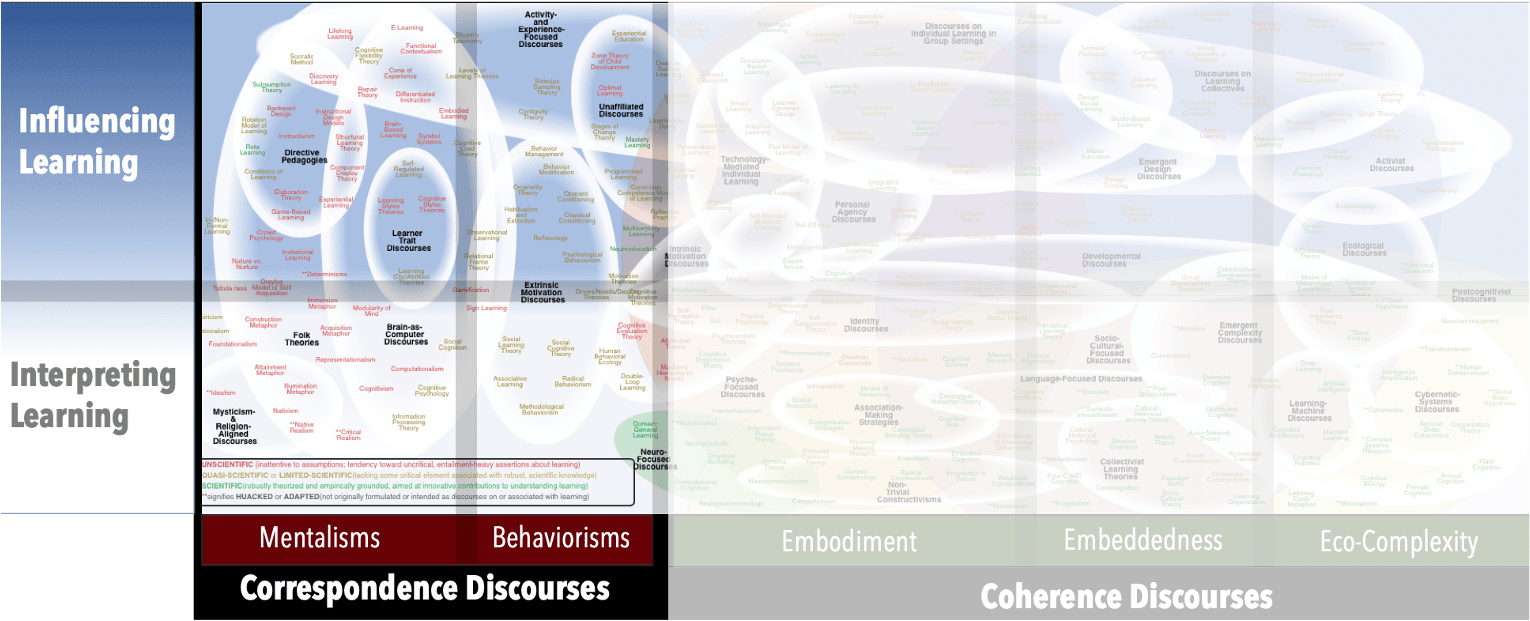Focus
Perspectives on knowledge/knowing relying on object-based metaphors
Principal Metaphors
- Knowledge is … an object(ive)
- Knowing is … possessing, having
- Learner is … a receptacle
- Learning is … getting, acquiring, internalizing, inputting, constructing, linking; attaining
- Teaching is … conveying, delivering
Rise to Prominence
1600s (in formal education), on the heels of the Scientific Revolution and at the dawn of the Industrial Revolution
Synopsis
For our purposes, Objectivity is the suggestion that real, reliable, truthful knowledge should be object-like, manifesting such qualities as stability, rigidity, inertness, replicability, decomposability, measurability, value-freeness, and situation-independence. Bits of knowledge are framed as things that are cold and hard and that can be weighed, wielded, used to build, built on, gathered, preserved, bought, and sold.
Commentary
As exemplified by Standardized Education, within knowledge-as-object frame, learning is about acquiring or attaining those objects, and teaching is about making those objects available. The language of Newtonian mechanics (i.e., classical physics) tends to feature prominently in such characterizations – perhaps most evident in emphases on clear learning objectives and objective measurements of learning. Further, a main purpose of Objectivity-oriented education is predictability. The sorts of phenomena that lend themselves to the associated manners of seeing/perceiving are those that have some sort of static or stable quality across observations, measures, and/or manipulations. Arguably, there are relatively few such phenomena in the very dynamic and frequently unpredictable spaces of learning – and the list of candidates seems to be dwindling steadily with recent complexifications of theories of learning and philosophies of education. A century ago, behavior, attention, and intelligence were seen by the establishment to be object-ifiable. Today, only sub-elements or highly controlled aspects of these phenomena continue to be seen in this light. Conversely, new vistas have opened that appear to lend themselves to being treated as things – such as, for example, brain activity, conceptual metaphors, and emotional well-being, all of which are objects of study across evolving neuroscientific and physiological methods.
Map Location

Please cite this article as:
Davis, B., & Francis, K. (2023). “Objectivity” in Discourses on Learning in Education. https://learningdiscourses.com.
⇦ Back to Map
⇦ Back to List
